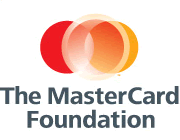The Government of Rwanda on Thursday announced a collaboration with MasterCard to fast-track the country’s move to include 90 per cent of its citizens in the financial mainstream as set out in its Vision 2020 strategy.
In a Memorandum of Understanding signed by the CEO of Rwanda Development Board and Cabinet Member, Francis Gatare, and Raghu Malhotra, the President of the Middle East and Africa for MasterCard, Rwanda will promote the move to a cashless economy by collaborating on numerous initiatives.
These solutions include the digitization of school fees and national healthcare claim payments, providing an online payment gateway for Rwanda Online, contributing to the creation of a common mobile banking platform and contributing to the effective management of spending activities across borders.
Speaking at the announcement, Gatare said: “We are confident that Rwanda’s partnership with MasterCard will be beneficial to the country and its citizens as we are implementing our vision of becoming a knowledge based service-oriented economy. I believe this can only be achieved as we embrace the fourth industrial revolution.”
Malhotra remarked that the Government of Rwanda shares the commitment of MasterCard to realizing a world beyond cash.
He said: “Our global reach and local experience makes MasterCard a perfect partner to help Rwanda meet its Vision 2020 strategy. Rwanda is a key market in East Africa for MasterCard and today’s announcement marks an important milestone in driving financial inclusion, not just in the country but in the region and Africa as a whole.”
According to the World Bank’s Global Findex 2014, two billion people globally do not have access to formal financial services.
In Rwanda, 42 percent of adults own a financial account, whether formal or informal.
Rwanda’s Vision 2020 aims for 70 per cent financial inclusion by 2017 and 90 per cent by 2020.
Building on the company’s approach to develop partnerships with governments, NGOs and local businesses, MasterCard and the Rwandan government will address common challenges faced by poor and often remote populations such as the lack of formal identification and financial illiteracy.
Trending
- CSO faults US Mission’s position on Edo governorship poll
- Abia governor condemns attack on Chinese miners
- APC seeks security agencies’ intervention in Osun LG crisis
- Assassination allegation: Group gives Akpoti-Uduaghan seven days to produce evidence
- ACF to FG: Act now on Plateau killings
- AFDEIC 2025: Conference to focus on Africa’s $180bn digital economy, Artificial intelligence
- Kano Eid-el-fitr Killing: Police withdraw invitation letter to Emir Sanusi
- PDP, Ighodalo insist on challenging tribunal decision after studying judgment CTC


